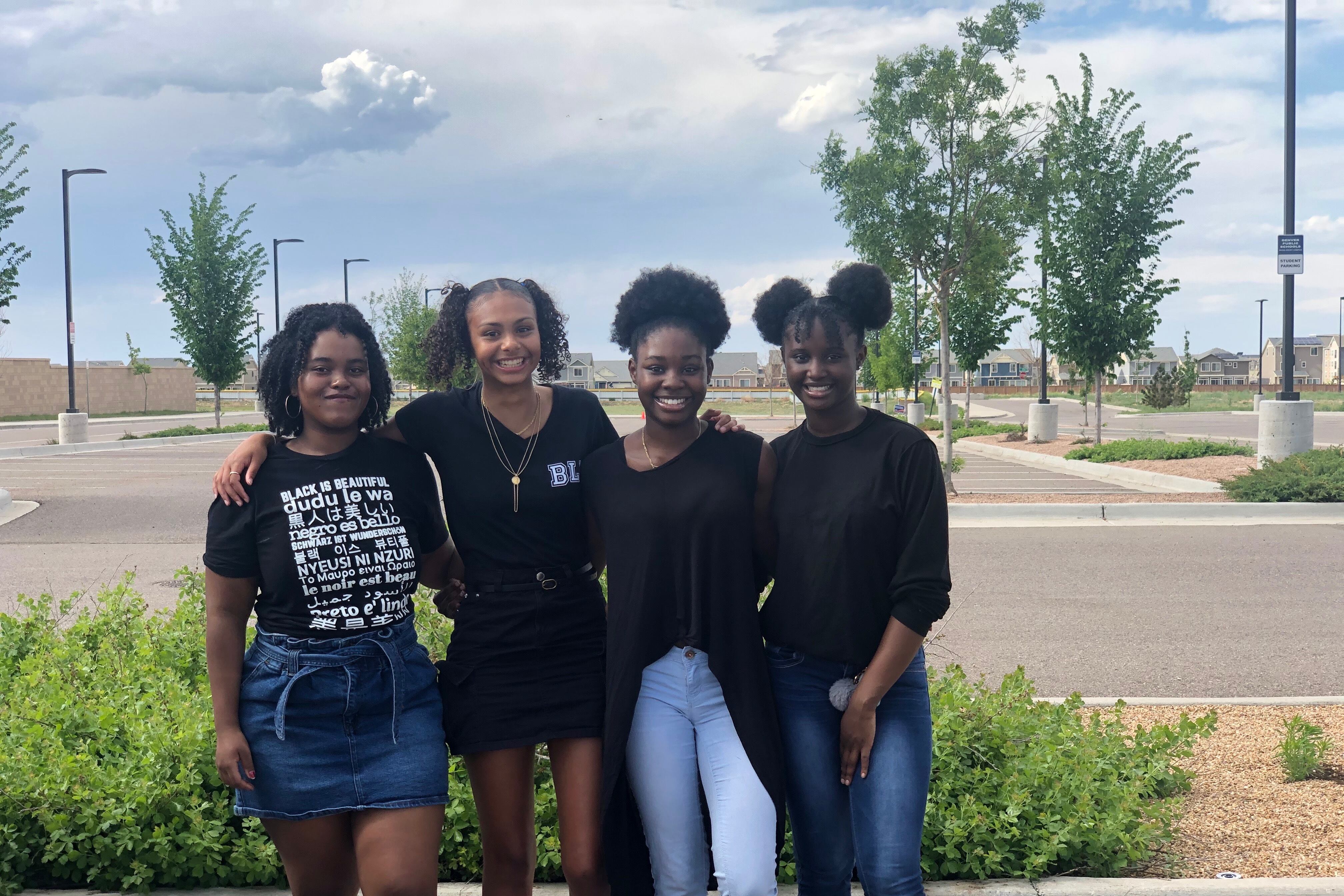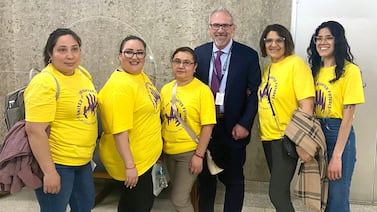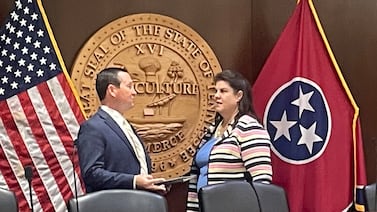Across the city, Denver students are rising up against racist policing. As adult-led protests at the state Capitol stretch into a second week, teenagers from several Denver high schools are planning marches in their own communities.
It’s important, they say, to show that youth are demanding a change, too.
“We have to grow up in a community where innocent people are being murdered,” said Melissa Boateng, who graduated last month from STRIVE Prep - RISE charter school. “We don’t want that for ourselves, we don’t want that for our younger siblings.”
Boateng and her friends are planning a march Saturday afternoon at 4 p.m. that will start at their school in the far northeast part of the city. On Sunday morning at 10 a.m., a group of students from Northfield High School are hosting one downtown at Civic Center Park. And earlier this week, an incoming sophomore at Denver’s North High School led protesters through her neighborhood.
Boateng hasn’t been able to watch the full video of a police officer kneeling on the neck of George Floyd, an unarmed black man whose death in Minneapolis sparked these and other protests nationwide. Watching it in its entirety is too painful, Boateng said, especially after she saw the video of Ahmaud Arbery, a black man fatally shot in Georgia by two white men while he was jogging.
“I can’t even describe how I felt,” said Boateng, 18, whose parents are immigrants from Ghana. “The fact that people have it in them to kill innocent people, to hunt people down, to not even think about their families they were supposed to go home to, their children they were supposed to go home to, their mothers they were supposed to go home to — it hurts.”
Boateng and her friends — all of whom were members of STRIVE Prep - RISE’s speech and debate team — were up late last week, following the first protests in Minneapolis.
Texting each other, some of them in tears, the teenagers decided they needed to do something here in Denver. At 1:30 a.m., Boateng sent a message to her former teachers, the same ones she said taught her to fight for her beliefs.
By 5:30 a.m., her teachers had responded, asking how they could help. They set up a call, and the students began laying out their ideas for a march in solidarity with Black Lives Matter.
“We see what’s happening,” said Kanara Bramlett, 17, who also graduated last month. “We really needed to demonstrate that we as young people have a voice in our community and we’re capable of creating the same amount of change as the adults.”
Their list of demands include that the Denver Police Department and elected officials, including Denver Mayor Michael Hancock and Colorado Gov. Jared Polis, make specific statements about how they plan to prevent further police violence against the black community. What elected officials have said thus far isn’t enough, the students said.
Boateng, Bramlett, and their friends credit their activism to their school, which has a focus on social justice. Students spend the first week after winter break learning about a specific topic. One year, it was environmental justice. Another, it was mass incarceration and the disproportionate number of black men and women who are imprisoned in America.
Haley Valdez and Zail Acosta, who are helping plan the march, said those lessons were eye-opening for them as Latino teenagers and made them want to be better allies.
Also eye-opening, the students said, was the way their debate team was treated at tournaments, when their school, where nearly all students are Hispanic and black, would compete against schools where nearly all students were white.
A white judge said she couldn’t relate to Boateng’s dramatic performance piece about a young girl in slavery, so the judge didn’t think the topic was as important as others. Debaters from other schools sometimes referred to Africa as a country, or argued against replacing lead water pipes in Flint, Michigan. Outside a tournament in Nebraska, someone in a passing car yelled a slur out the window as Acosta and his friends crossed the street.
At home, Bramlett said her mother worries about her being targeted. “Racism is something we talk about because we have to talk about it,” she said. “As a black person, it’s just my life.”
Boateng recalled how her father was once kicked out of a grocery store and told he couldn’t send a money order. He and his friends were speaking their native language, Twi, and the clerk said it wasn’t possible to tell if the men were committing fraud.
“If he’d stood up for himself, the cops would have been called and he could have been in the same place as George Floyd,” Boateng said.
All four students said their parents, worried about safety, have forbidden them from going to the adult-led protests in downtown Denver, where police have sprayed tear gas and shot demonstrators with foam bullets. The teenagers are working to ensure their protest will be peaceful and give students a safer outlet to demand justice.
“When you think about it, slavery didn’t end; we didn’t get our rights,” Bramlett said. “I’m really happy to see that so many people are joining the movement and realizing this is a problem, and so many people are standing in solidarity with the black community.”








